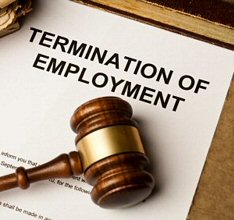If you have retained an Evansville employment attorney, he or she will ensure that your employer has properly preserved all documents relevant to your case as required by law.
Employer obligation to find and maintain relevant records

The employer should maintain all written and digitized records pertaining to you, any employment actions taken against you, or any in-house inquiry carried out by the employer.
Employers have two reasons to keep these documents:
- Both parties are legally required to preserve pertinent evidence. Should the employer fail to fulfill this obligation, your Evansville employment attorneycan ask the court to penalize him or her in various ways, including:
- Instructing jurors that they may assume the discarded evidence was beneficial to the plaintiff.
- Case dismissal.
- Disallowing of claims and defenses.
- Monetary penalties and ordering the employer to pay your Evansville attorney’s legal fees.
- What the employer may consider as damaging documents might be actually helpful to his or her defense. For example, preserved records of its investigation of an in-house complaint of discrimination, while possibly harmful to the employee’s case, can be used to bolster the employee’s argument that he or she properly addressed allegations of discrimination by investigating the complaint in a timely manner.
Your Evansville employment attorneyshould be well aware that the employer can save important electronic information offline in flash drives or in external data sources such as workplace laptops, PDAs, or computers that can be linked to the employer’s IT system from outside the office.
Handing the documents to the attorney
The employer should provide all case-related documents to his or her attorney, including:
- The plaintiff’s personnel file.
- Relevant emails and other correspondence.
- Supervisor’s observations.
- Additional documents pertaining to the relevant transaction at issue.
- Any appropriate insurance policies, benefit and wage records, written policies, and employee handbooks.
The attorney could also require the personnel files of: (1) other employees, which can be utilized to demonstrate that the plaintiff was treated no differently from employees in similar situations or was fired, not offered promotion, or demoted owing to a valid business reason; and (2) any specific employees suspected of mistreating or discriminating against the plaintiff and other germane witnesses.
Organizing the documents
The employer’s attorney may also want a chronological timeline of the events that led to the action, as well as the plaintiff’s employment record prior to, during, and following such incidents and any additional information related to the plaintiff’s claims.
The employer must make sure that such documents are readable and comprehensive. It’s also important that they are properly labeled to reveal their source, especially if there are numerous copies of the same or a similar document.
Contact us
Injured plaintiffs requiring legal counsel from an established Evansville employment attorneyare welcome to call theSiesky & Viehe Law Firm, PC,at (812) 402-7700. The initial consultation is free.
